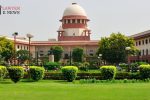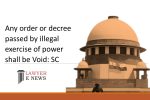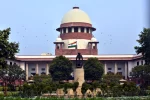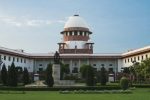Strict rules of evidence are not applicable to departmental enquiry proceedings-SC

JANUARY 05, 2021
A former employee of the State Bank of India (SBI) has been found guilty of misappropriating bank’s money by affording fake credits in his various accounts maintained at the Branch where he was posted. A criminal case was also instituted against him for offences under Sections 420, 467, 468,. 468, 471 IPC read with Section 120B IPC and Prevention of Corruption Act, 1988.The State Bank of India and All India State Bank Staff Federation, confirmed the penalty of dismissal from service by its order dated 24th July 1999. The appeal preferred by the respondent was just a reflection of the general objection raised in reply to the show cause notice with no specific averment in the appeal as to what was the procedural error being committed by the enquiry officer Disciplinary/appellate authority has passed a non-speaking order which is in violation of the principles of natural justice. The view expressed by the learned Single Judge came to be affirmed by the Division Bench of the High Court by its impugned judgment dated 13th September 2018, which is the subject matter of challenge before Supreme Court. CBI court of Lucknow has found an employee guilty and sentenced him to ten years rigorous imprisonment with fine and in default to undergo imprisonment of three months. The employee was found guilty of offences under Sections 420, 467, 468,. 468, 471 IPC read with Section 120B IPC and Section 13(2) read with section 13(1)(d) of Prevention of Corruption Act, 1988. During enquiry respondent employee did not produce any document nor witness in self-defence and never requested to be defended by a representative of his choice. The power of judicial review in the matters of disciplinary inquiries, exercised by departmental/appellate authorities discharged by constitutional Courts under Article 226 or Article 32 or Article 136 of the Constitution of India is limited to correcting errors of law or procedural errors leading to manifest injustice or violation of principles of natural justice. “It is true that strict rules of evidence are not applicable to departmental enquiry proceedings, but the only requirement of law is that the allegation must be established by such evidence acting upon which a reasonable person acting reasonably and with objectivity may arrive at a finding upholding the gravity of the charge against the delinquent employee. Constitutional Court would not interfere with findings of fact arrived at in the departmental enquiry proceedings except in case of malafides or perversity, i.e. where there is no evidence to support a finding or where no man acting reasonably and with objectivity could have arrived at that finding. Appeal Allowed.
DEPUTY GENERAL MANAGER AND OTHERS
VERSUS
AJAI KUMAR SRIVASTAVA






